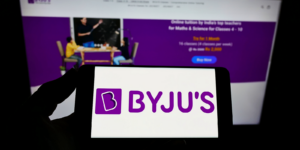In recent weeks, the internet has been buzzing about the “Goodbye Meta AI Movement,” a trend that has captured the attention of social media users, particularly on platforms like Instagram and Facebook.
While it may appear to be a campaign against the use of artificial intelligence by Meta, there are underlying concerns that suggest it is more of a scam than a legitimate movement. Here’s everything you need to know about this viral trend!
What is the Goodbye Meta AI Movement?

Recently, Mark Zuckerberg-backed Meta announced they are going to use public posts (including captions and comments) of users above the age of 18 to train their AI model. However, it mainly concerned users from the United Kingdom.
This led to a severe backlash from users from the UK who wanted to opt out of this. After that, the Goodbye Meta AI Movement began as a way for users to express their disagreement with their posts being used as data. Even popular celebs like Tom Brady and Ashley Tisdale joined this online protest.
The statement claimed to help users protect their photos and personal data from being used by Meta’s AI systems which is why it gained traction with the promise of safeguarding personal information and promoting digital privacy.
Surprisingly, it ended up being a ‘copypasta,’ which refers to text that gets copied and pasted all over the internet, often leading to the spread of misinformation.
The truth behind the movement
Meta clearly stated the idea that simply posting a status update cannot legally shield users from a company’s data practices. In short, the “Goodbye Meta AI Movement” was nothing but a scam that attracted thousands of users to participate.
Meta’s terms of service, which users agree to when signing up for the platforms, essentially grant the company rights over user-generated content. This means that the viral posts being circulated hold no legal weight.
Digital privacy becoming a concern
The movement’s messaging is largely rooted in misunderstandings about digital rights and privacy. While concerns about data usage by big tech companies like Meta are valid, the solutions being proposed are misguided. The viral posts can give users a false sense of security, leading them to believe they have effectively protected their data when, in fact, they haven’t changed anything legally.
Why this matters
The Goodbye Meta AI Movement raises important questions about digital literacy and the responsibility of users to understand their rights online. When people believe they have taken action to protect their data through ineffective means, they may overlook more practical steps—like adjusting privacy settings or being more selective about what they share online.
While the movement may stem from genuine frustrations with Meta’s data practices, it is important to approach such trends critically. The internet is filled with scams and misinformation, and the Goodbye Meta AI Movement exemplifies how quickly misconceptions can spread.
Instead of relying on viral posts to navigate privacy concerns, users should seek out reliable sources of information before jumping on the bandwagon.
The takeaway
The Goodbye Meta AI Movement is an intriguing case study of how viral trends can emerge around pressing issues like data privacy. It’s important to be aware of the laws about social media use and to have informed discussions rather than believing sensational claims. Understanding digital rights is key to navigating online privacy. This incident again warns us about the dangers of misinformation and the importance of being digitally literate.


![Read more about the article [Weekly funding roundup June 1-7] VC inflow continues its upward trajectory](https://blog.digitalsevaa.com/wp-content/uploads/2024/05/Weekly-funding-roundup-1670592545805-300x150.png)







